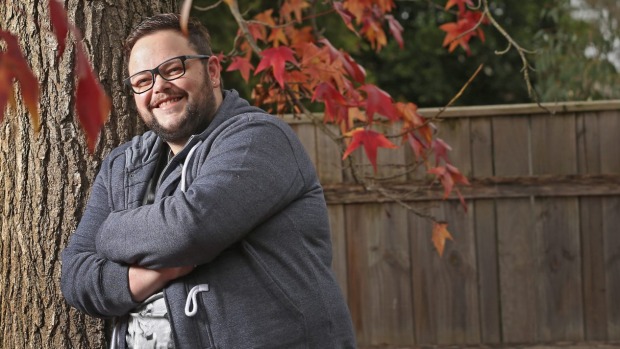
Joel Chatelier has taken part in a project looking after the physical health of patients receiving mental health treatment. Photo: Wayne Taylor
The physical health of people with a severe mental illness is “dire”, with the biggest cause of premature death not being suicide, but preventable diseases, health experts say.
Although suicide remains a significant risk, more people diagnosed with schizophrenia and related disorders are likely to die from cardiovascular disease, caused by obesity, smoking and a lack of exercise.
Three-quarters of Australians diagnosed with psychosis are overweight or obese, about half have high blood pressure and two-thirds are smokers. Those experiencing schizophrenia have a smoking rate of up to 90 per cent.
Side effects from some anti-psychotic medications can cause significant weight gain.
Professor David Castle, chairman of psychiatry at St Vincent’s Hospital Melbourne, said the best way for health authorities to treat patients is a “whole person” approach.
“These issues are not being picked up and dealt with anywhere near as good as they should be,” he said. “Doctors are often concentrating on the mental side of and often people with mental illness don’t advocate as strongly on their behalf as they could.”
Liz Crowther, Mental Illness Fellowship chief executive, said is was “completely unacceptable” that people with severe mental illnesses were likely to die an average 20 years earlier than other Australians.
“Physical health assessments should be standard practice when someone is prescribed psychiatric medication that is known to have potentially serious physical health impacts,” she said.
Bayswater man Joel Chatelier, 32, put on 70kg after he started taking medication to control his schizophrenia, anxiety, depression and post-traumatic stress disorder.
His motivation to be active plummeted and his weight soon ballooned to 150kg. Now down to 100kg, he said losing weight and becoming more active were important to his overall health.
“The medication really sedated me, I had no drive to do things and felt physically really worn down, all on top of trying to deal with my mental illness,” he said.
He is now working on quitting smoking.
The federal government’s National Mental Health Commission reviewed the country’s mental health programmes and services and released its report in December last year, which aims to reduce Australia’s suicide rate by half in 10 years.
It acknowledged that “poor physical health among those with severe and persistent mental health problems” but did not make any recommendations to improve this.
Professor Castle believes the review has missed a rare opportunity to address the “dire” situation.
“We’ll reduce premature deaths among mentally ill Australians by an even greater number if we do a better job screening, intervening and then monitoring the physical health of this patient group,” he said.
Professor Castle said checking on patients diet, activity levels and weight needed to be considered by mental health professionals when assessing their clients.
